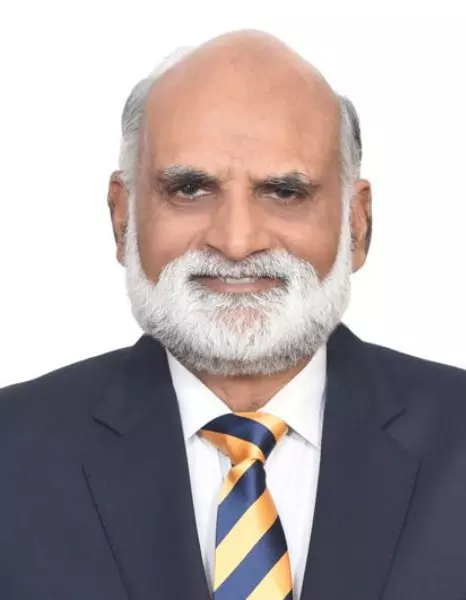Cracking down
A menace even before the pandemic, the illicit worldwide trade of counterfeits has become even more of a danger to civilised society in the times of COVID-19
The year 2020 will go down in history as a year in which the COVID-19 pandemic unleashed its fury world over, and brought the activities in all spheres of life to a screeching halt. The impact of this pandemic on the economies and societies across the globe is incomparable to any event over the past 100 years, and therefore it's bearing on governance and law enforcement too is bound to be intense. While governments of all nations are committed to fighting this adversity, the perpetrators of illicit trade are viewing this current situation as an opportunity to expand and intensify their operations and are finding new ways to make money, largely by exploiting the fear and uncertainty surrounding the prevailing circumstances.
The size of the problem is staggering, even before the onset of the pandemic, the Organisation for Economic Cooperation and Development (OECD) in 2019 stated that trade in counterfeit and pirated goods has risen steadily over the last few years and stood at 3.3 per cent of global trade. Unfortunately, the pandemic has not only complicated this situation but has made matters worse.
Ever since the World Health Organisation (WHO) announced COVID-19 as a global health emergency in March 2020, worldwide reports indicated a surge in the availability of fraudulent medical and consumer sanitary products. Interpol's global operation Pangea XIII, which saw police, customs and health regulatory authorities from 90 countries take part in collective action against the illicit online sale of medicines and medical products, seized large quantities of illicit facemasks, substandard hand sanitisers and unauthorised antiviral medication. Similarly, Europol in its report 'Pandemic Profiteering' states that the sale of counterfeit and/or sub-standard foods, hygiene items and everyday goods is booming in the pandemic economy and there is a risk that the perpetrators of the crime will use shortages in the supply of some goods to increasingly provide illicit alternatives both on and offline. Further, Interpol and Europol have also warned against frauds in which consumers are tricked into buying non-existent medical supplies or making payments intended for medical care into criminal accounts. Estimates show that tens of millions of dollars have already been lost by victims of such scams.
In India, dealing with the menace of illegal goods during the COVID-19 crisis is a formidable challenge. Sale of such goods has a crippling effect on the nation's economic progress, owing to the lower collection of taxes for the government along with adversely impacting the health and safety of the citizens. Also, in India, the opportunities for illicit operators during the pandemic do not end with just sanitary or medical products. Since lockdown, Indian Customs, Directorate of Revenue Intelligence, police and paramilitary forces have raided and seized smuggled, spurious and counterfeit sanitisers, masks, PPE Kits, disinfectants, toiletries and cosmetics, electronic goods, cigarettes, packaged food, spices, alcohol and several other items across various states. With an increasing number of seizures being reported every day, it is highly possible that the total seizures may just be the tip of the iceberg of a much larger network. With a substantial portion of India's population in the rural and semi-urban areas, the smugglers and counterfeiters find it relatively easy to hoodwink the people and make deep inroads into these areas and generate ill-gotten profits.
Eventually, neither the strict quarantine measures nor an invincible virus could stop this menace, which has, as a matter of fact, existed and damaged societies and economies for decades, well before we even heard of the Coronavirus. It needs to be underscored that these smugglers and counterfeiters see this ongoing adversity as an opportunity as they feel that the enforcement agencies are preoccupied with dealing with the COVID-19 menace and have put this matter on the backburner. However, this could not be further from the truth and this is borne out of the fact that there have been a record number of seizures across different states during the COVID-19 period. Having said this, looking at the new modus operandi of the illicit traders, the policymakers need to escalate this matter and deal with these crimes as nothing short of a national threat.
Tackling the global scourge and surge of smuggled and counterfeit goods becomes even more critical during this ongoing public health crisis. Realising the magnitude of this problem, FICCI has been consistently focusing on the need to curb the issue of growing illicit trade in counterfeits, pass offs and smuggled goods, and has dedicated a forum, CASCADE — Committee Against Smuggling and Counterfeiting Activities Destroying the Economy for this cause. FICCI CASCADE works in close collaboration with the industry, consumers, media, legal experts, consumer organisations and Government to create awareness on how counterfeiting and smuggling have become a serious threat to public health and safety. In addition, CASCADE has undertaken a nationwide campaign in combating counterfeiting and smuggling during the COVID-19 pandemic, with the aim to sensitise the people of its ill effects and increasingly involve the Government at the Centre and the states to deal with this challenge in the best and most effective manner.
It is in the interest of all, that the systems in place only strengthen over time as there is absolutely no room for laxity. The fact that those involved in this illicit trade have even tried to exploit a worldwide pandemic to make greater profits, leaves no room for ambiguity and should reinforce our resolve to deal with them with an iron fist.
The writer is the Chairman, FICCI CASCADE and Senior VP, Corporate Affairs, ITC Ltd. Views expressed are personal



